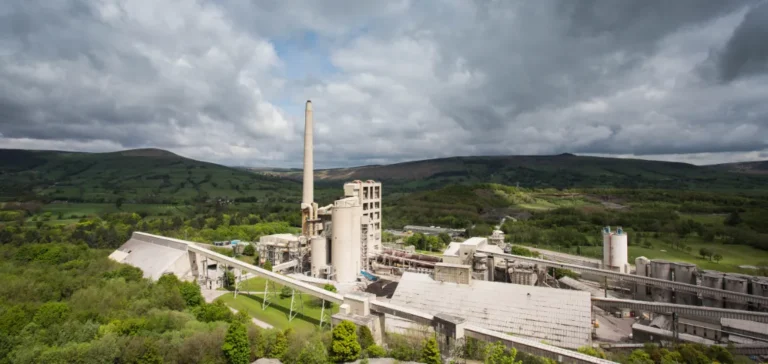The UK’s National Wealth Fund (NWF) has announced a GBP 28.6 million equity investment in the Peak Cluster Ltd. project, aiming to develop carbon dioxide (CO₂) transport infrastructure. This investment is part of a broader GBP 59.6 million funding round involving several key industrial and financial stakeholders from the cement and lime sector. Among these investors are Summit Energy Evolution Ltd., a subsidiary of Japan’s Sumitomo Corporation, Progressive Energy Peak Ltd., as well as major British producers Tarmac, Breedon, Holcim, and SigmaRoc.
Strategic infrastructure for the sector
The Peak Cluster project involves the creation of a pipeline network to collect and transport captured CO₂ from industrial facilities primarily located in Derbyshire and Staffordshire. These regions alone account for around 40% of the UK’s cement and lime production. The carbon dioxide transported via this infrastructure will be permanently stored as part of the Morecambe Net Zero project, operated by British energy firm Spirit Energy.
The funding provided by NWF will help accelerate preliminary technical studies, particularly those involving detailed engineering and obtaining the necessary permits. A Final Investment Decision (FID) is anticipated by 2028. If approved, the pipeline could become operational in subsequent years.
Strong government backing
The NWF investment enjoys direct support from the UK government, exemplified by public statements from Rachel Reeves, Chancellor of the Exchequer. According to Reeves, this project is strategic because it addresses the urgent need to modernize industrial infrastructure while supporting employment in economically sensitive regions. Reeves also highlighted the importance of the project in terms of creating or preserving jobs, especially in the affected areas.
For John Flint, Chief Executive Officer of NWF, rapidly mobilizing public and private capital in hard-to-decarbonize sectors such as cement and lime is crucial for achieving national greenhouse gas emission reduction targets. Flint emphasized that immediate action ensures better preparedness for the large-scale deployment of necessary infrastructure.
Industry facing technical challenges
The cement and lime industries are facing significant challenges in reducing their CO₂ emissions, primarily due to the very nature of their manufacturing processes. This industrial sector, essential for construction and manufacturing across the UK, generates emissions particularly difficult to mitigate without specialized infrastructure like that proposed by Peak Cluster.
The Peak Cluster network thus aims to become a centralized platform for capturing and storing industrial CO₂, allowing multiple major industry stakeholders to share associated costs.






















